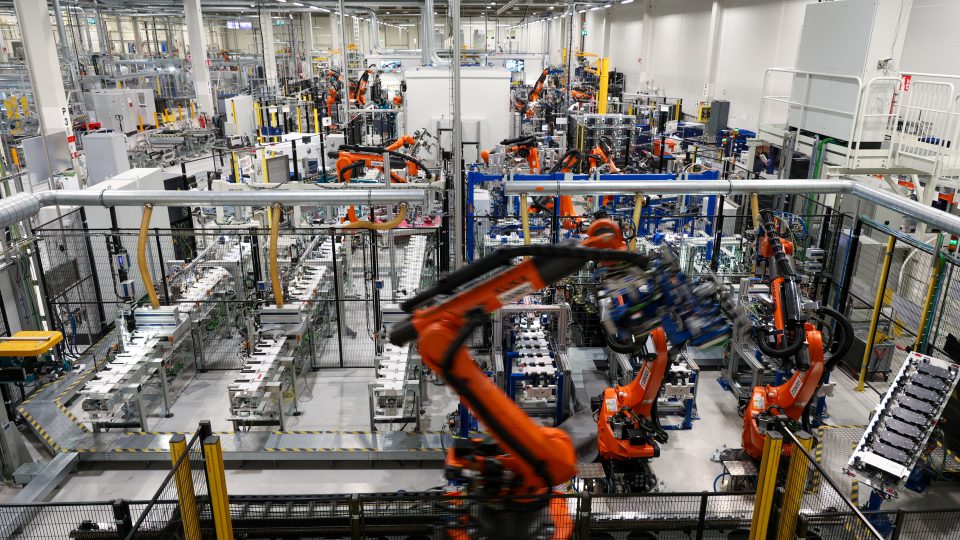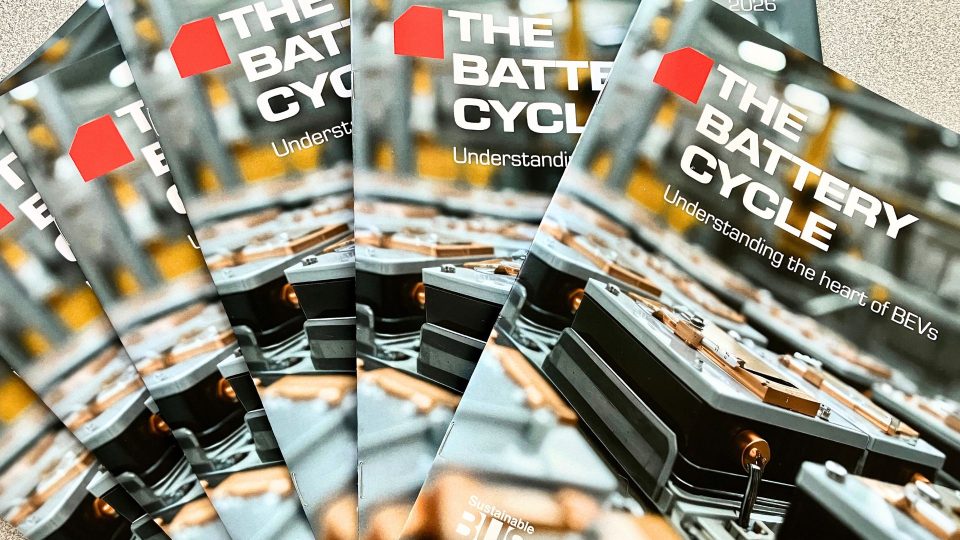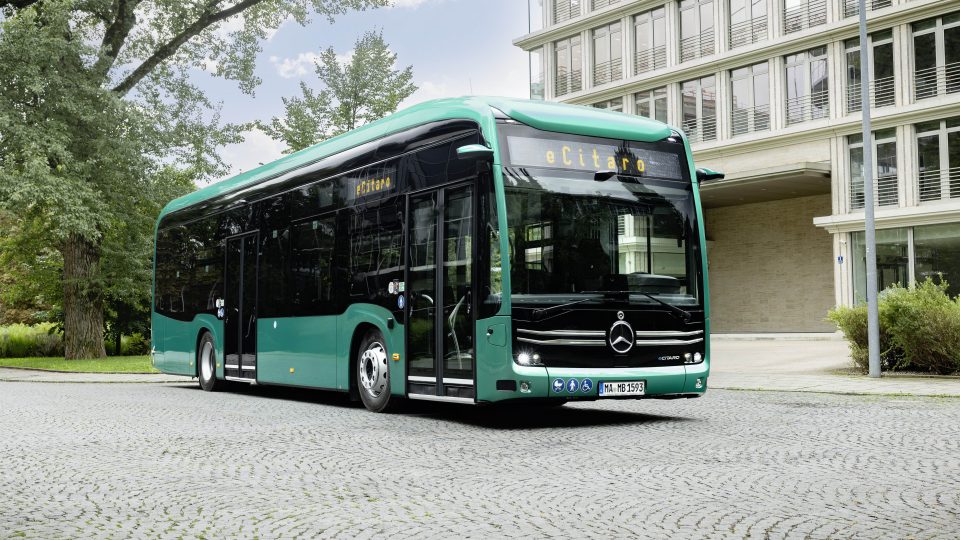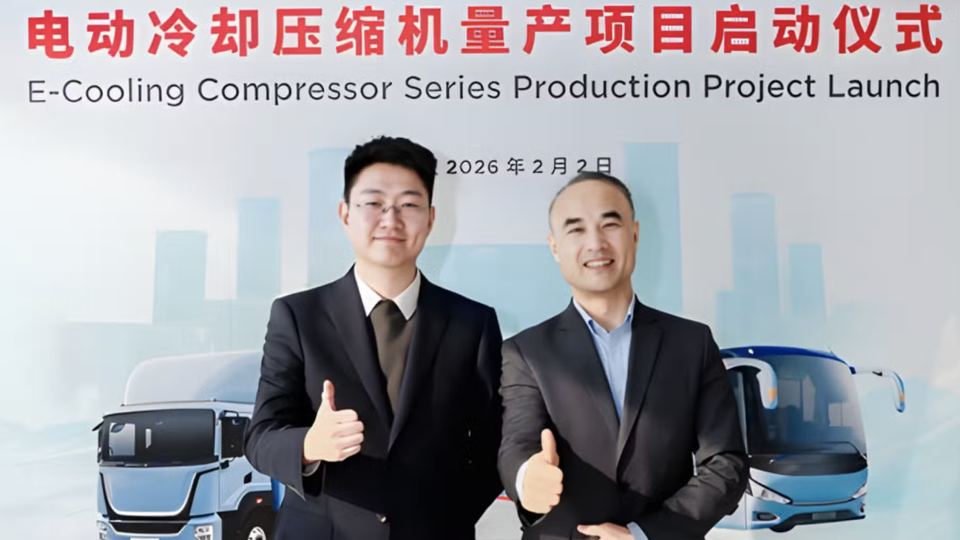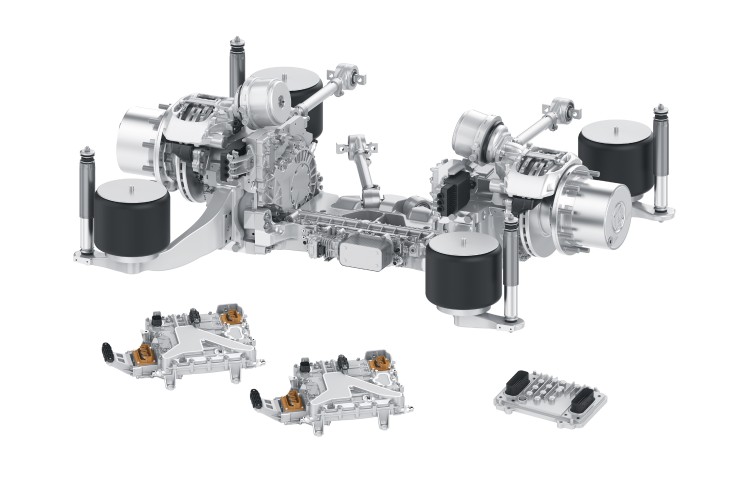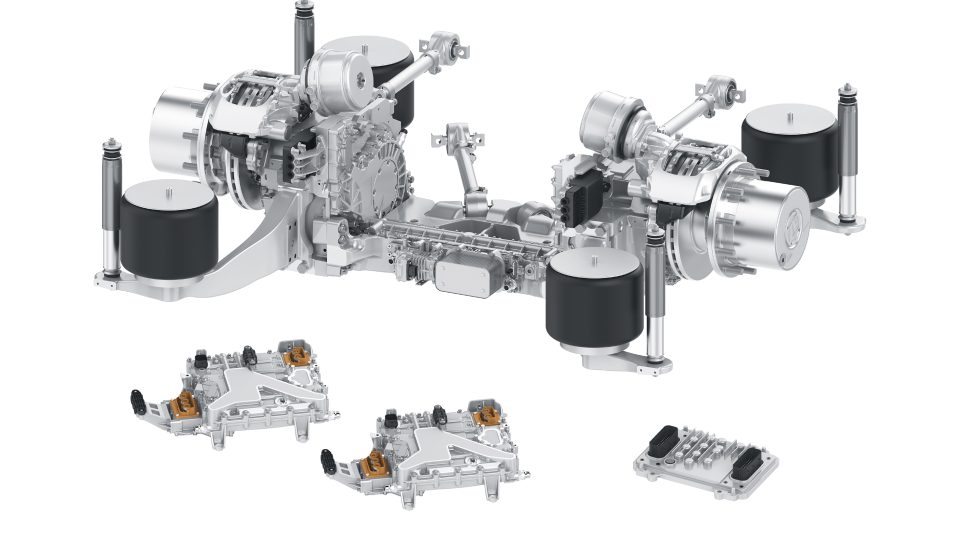First Bus has placed an order for 32 repowered buses with Wrightbus’ NewPower
First Bus becomes first UK Bus operator to place order with NewPower, a new enterprise owned by bus manufacturer Wrightbus that coverts diesel buses into zero emission vehicles. An initial order of 32 buses has been placed that will serve four regions. The new company has the goal of converting more than 1,000 diesel buses […]
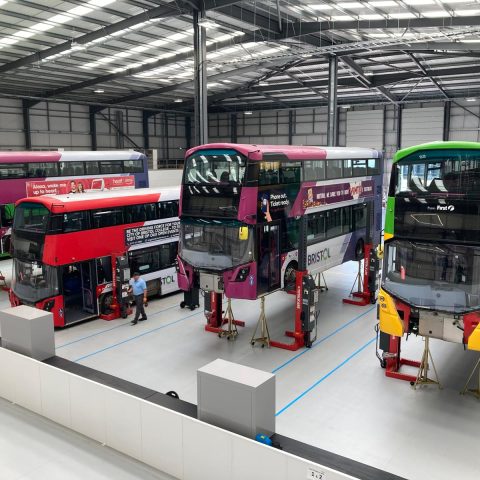
First Bus becomes first UK Bus operator to place order with NewPower, a new enterprise owned by bus manufacturer Wrightbus that coverts diesel buses into zero emission vehicles.
An initial order of 32 buses has been placed that will serve four regions. The new company has the goal of converting more than 1,000 diesel buses into electric ones over the next 3 years.
NewPower, the first order comes from First Bus
NewPower was launched just weeks ago by bus manufacturer Wrightbus. It is the first original equipment manufacturer (OEM) to offer a repowering service. First Bus collaborated with Wrightbus from the outset of this project providing an initial two vehicles to trial and perfect the technology on ahead of the launch of NewPower, the operator states in a press note.
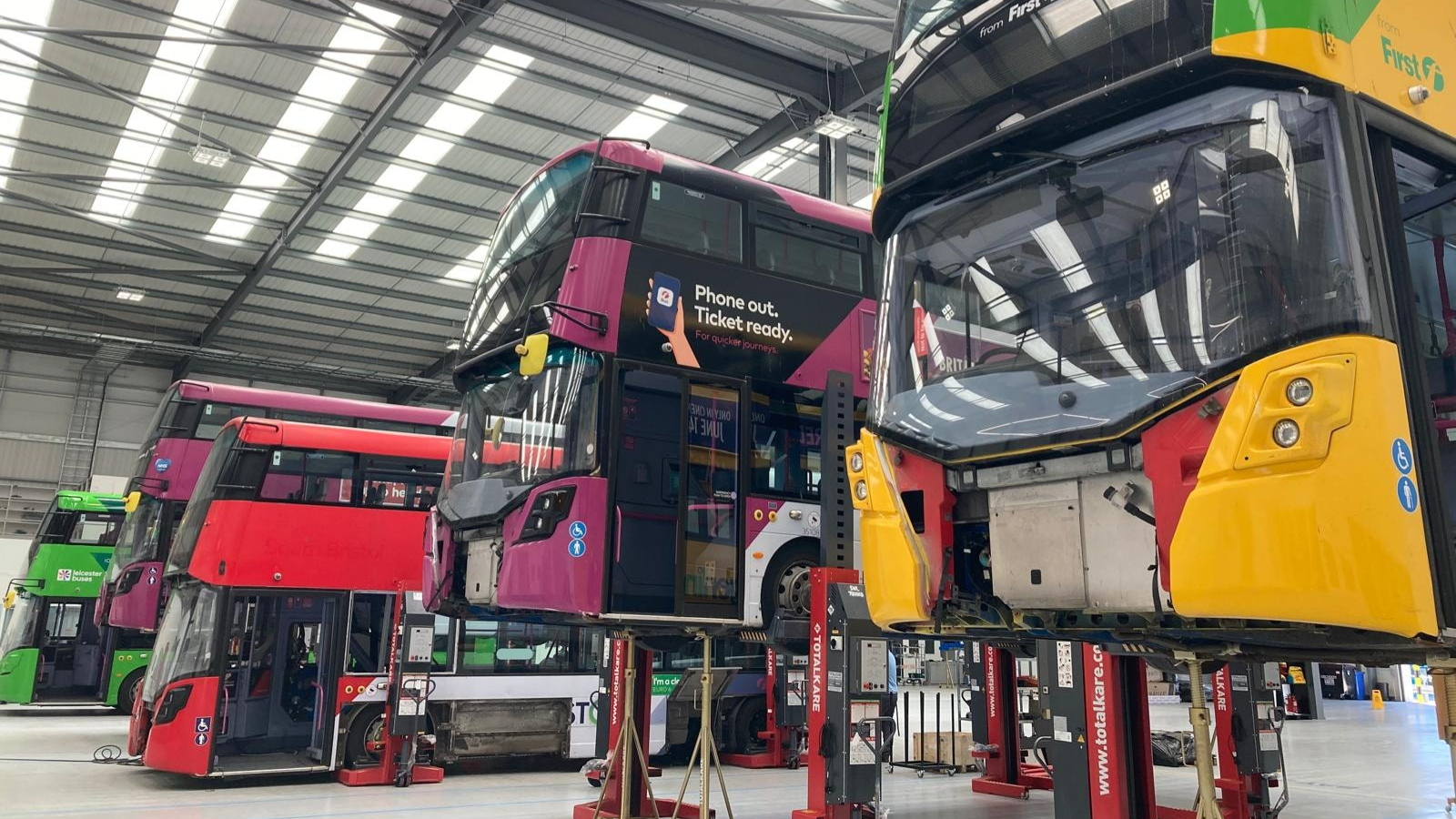
Following the successful conversion of the first two diesel vehicles, First Bus has now ordered a further thirty buses that will now have their diesel engines replaced with new zero-emission electric powertrains at NewPower’s hi-tech Bicester factory in Oxfordshire (it was the former plant of Arrival).
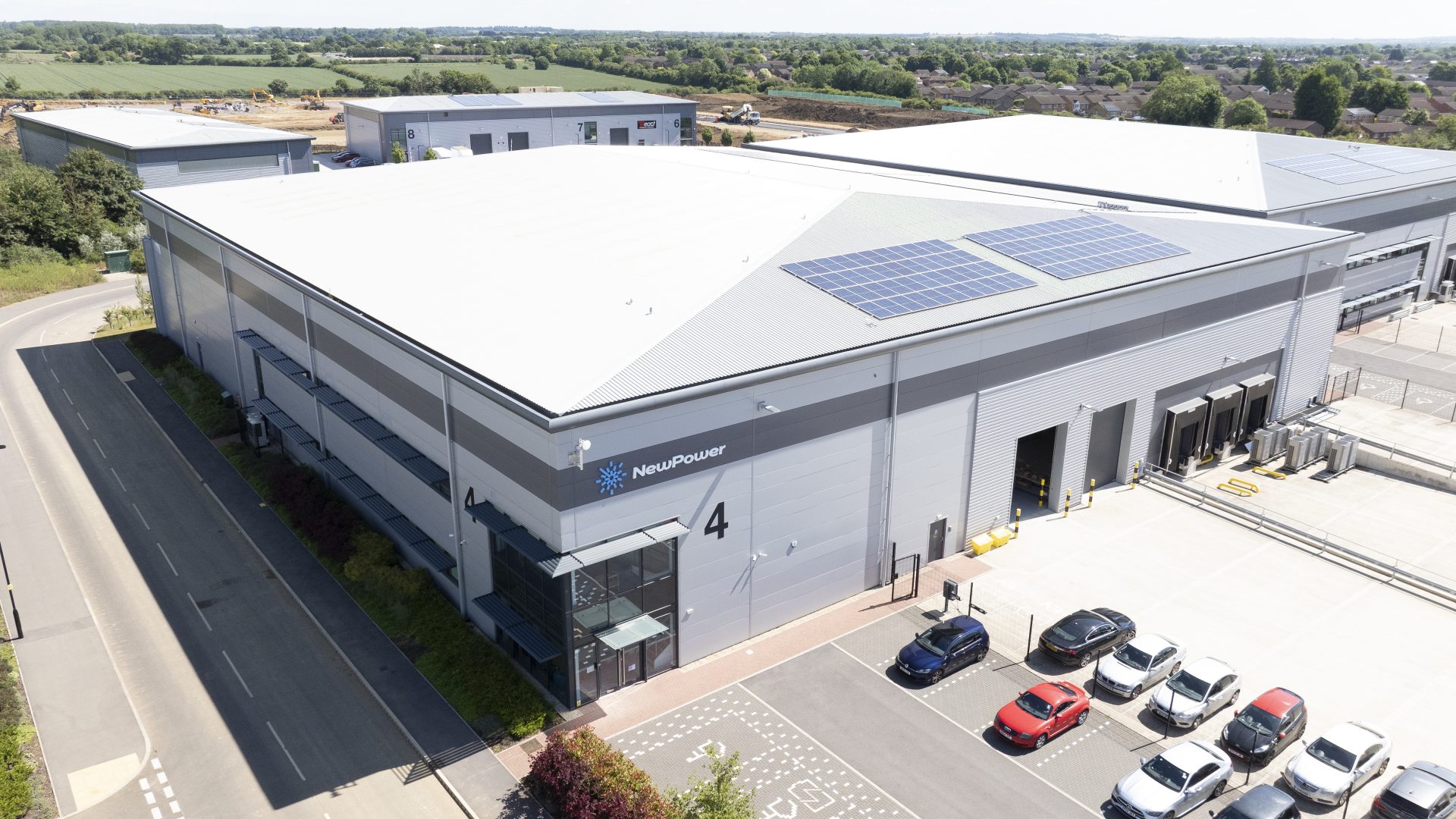
First Bus has committed to ensuring its entire fleet is zero-emission by 2035. The 32 repowered buses will be introduced over the next few months in areas with existing EV infrastructure in Portsmouth, Norwich, Bramley (Leeds), Leicester and Aberdeen; joining a growing EV fleet of over 600 vehicles already serving customers across the First Bus UK network.
First Bus aims for a ZE bus fleet in 2035
The process includes the removal of the engine, gearbox, fuel tank, radiator and other components, before the installation of the new EV batteries (sourced from Forsee Power) and electric drive system. The old diesel parts are then recycled.
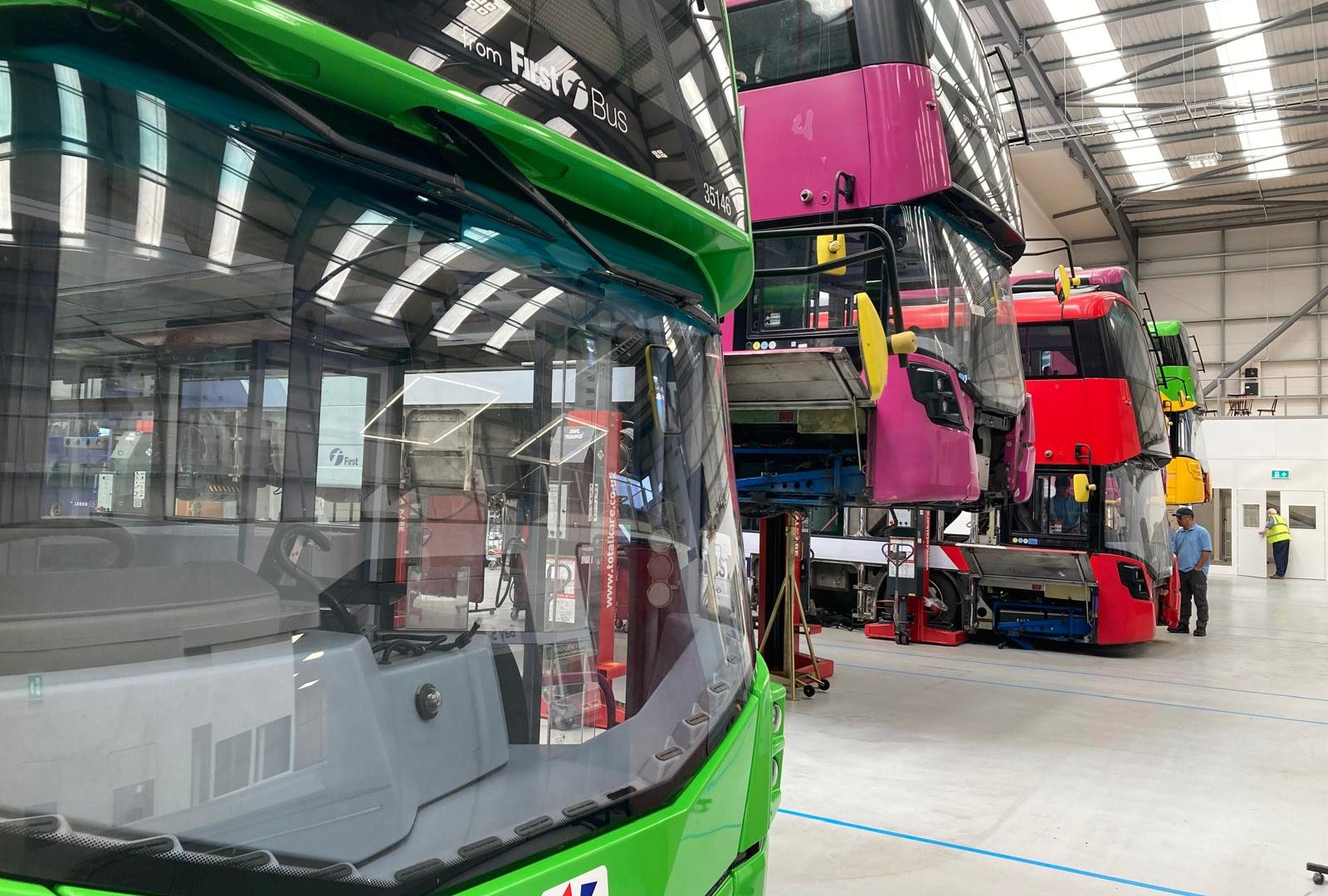
Wrightbus CEO, Jean-Marc Gales, said: “At Wrightbus, we already have a positive relationship with First Bus, having supplied them with numerous zero-emission buses over recent years. That’s why it’s particularly satisfying to receive NewPower’s first order from them,” he said. “By using the expertise of our 1,800-strong Wrightbus workforce – including our master technicians – NewPower has unrivalled expertise in being able to swap powertrains. Once back in service, the repowered buses will have an immediate impact on reducing pollution and improving air quality in the towns and cities in which they operate.”
First Bus’ Decarbonisation Programme Director, Faizan Ahmad, said: “We are thrilled to place this order for an additional 30 repowered buses and to continue our collaboration with Wrightbus on this exciting project. We’ve partnered with the NewPower team from the outset of this initiative and are proud to be a driving force in the zero-emission space once again with another innovative solution. “We are committed to achieving a fully electric bus fleet by 2035, and repower technology has the potential to be a real game-changer in helping us reach that goal as well as benefiting the wider bus industry as we work to decarbonise the sector.”

